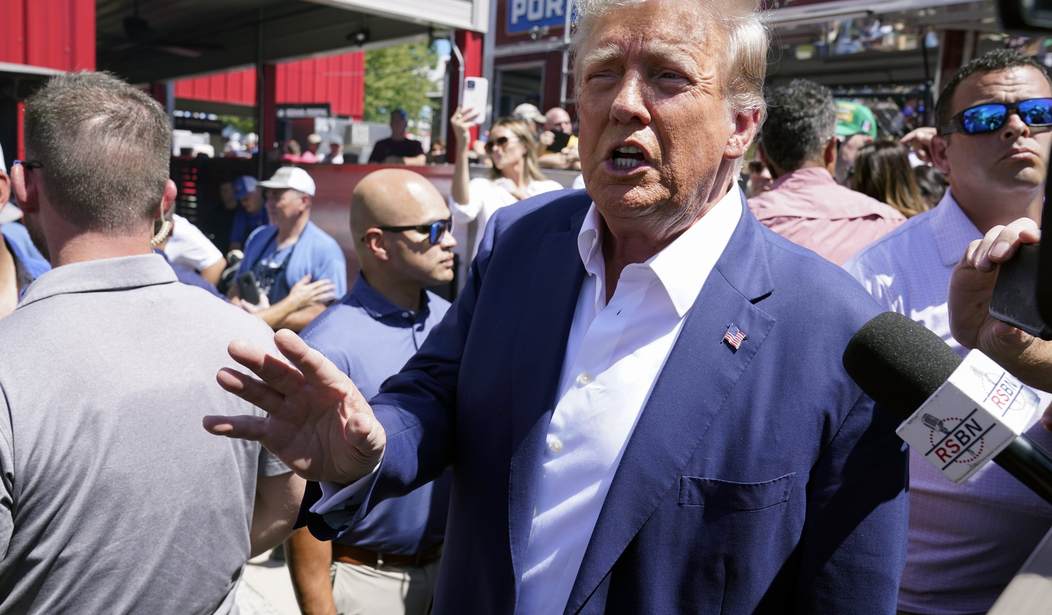Political enthusiasts across the nation are likely to be disappointed with the upcoming debate tonight. Why? Because without the looming presence of former President Donald Trump, there will undoubtedly be fewer zingers, memorable quotes, and the kind of sensational moments that the media love to seize upon. Trump, for all his controversies and unconventional style, has an undeniable knack for generating significant media coverage and public interest. It's a paradox - the more negativity he attracts, the better he seems to perform.
By skipping the debate, Trump has managed to make an event he is refusing to participate in, all about him. But is this a strategic masterstroke, or could it backfire? The answer remains uncertain. The Republican Party and Fox News, well-accustomed to Trump's rollercoaster presence, will carry on without him. However, the former President's absence may still dominate the evening's discussions. It's a challenge that both social and traditional media have already been forced to reckon with.
We witnessed something similar when Trump left Twitter, a platform he dominated with his unfiltered, always provocative tweets. In his absence, the platform became markedly less exciting. His departure left a void that Elon Musk, a prominent figure in the tech world, would surely welcome back. Indeed, Musk has expressed his desire to see Trump (and the dialogue that follows him) return to the platform. He is about to get his wish in part at an interview with Tucker Carlson that will be hosted on X and conflict with the debate.
While the Tucker Carlson interview will surely get more views, without Trump on the debate stage, a golden opportunity for other candidates, particularly those vying for the Republican nomination, is presented.
Governor DeSantis (the candidate I support), a prominent contender, stands to gain a renewed chance to emerge as a clear alternative. Trump's decision to skip the debate provides DeSantis and all other candidates with distinct advantages to differentiate themselves and make their case to the Republican Party and the American people.
Recommended
What's more, without Trump's presence, candidates will be able to present their points without the nicknames, insults, and interruptions that define Trump's style. Unless, of course, he decides to employ surrogates or leverage his new social media platform, Truth Social, to send out some 'mean tweets' during the debate.
Reacting in real-time has its benefits. While a pre-recorded interview with Tucker Carlson is valuable (including significantly more views than any traditional media outlet), it fails to present the same advantages.
During the debate, viewers will be presented with a series of alternatives to the polarizing and unfiltered Trump. If the candidates can successfully change the conversation and focus on their own strengths and policy positions, it may mark the beginning of a more substantial erosion of President Trump's support within the party.
Make no mistake; Trump remains a prominent figure in American politics. Despite a series of indictments and attacks from the media and other candidates vying for the Republican nomination, his ability to capture public attention remains stronger than ever. He continues to dominate the conversation. However, the critical question is whether this attention is translating into tangible support or votes.
In current polling, Trump still maintains a significant lead within the Republican base. However, as he increasingly abandons his competitors on the debate stage and recedes from some of the public eye, many Republicans seem to be reconsidering their allegiances. The question that looms large is whether a formidable Republican challenger will emerge strong enough to provide a viable alternative to Trump and potentially win the party's nomination. It is possible – and perhaps even likely.
The debate could reveal how deep (or shallow) Trump's influence permeates the Republican Party. Do his policies and style continue to dictate the party's agenda, or are there signs of a broader ideological spectrum emerging within the GOP? The answers to these questions could have far-reaching implications for the 2024 presidential election and the future direction of American conservatism (which is more than Trumpism).
As we eagerly await the debate, it's crucial to recognize that Trump's absence is not just a void but an opportunity. It's a moment for other candidates to step into the spotlight and showcase their vision for the future. It's also a chance for the Republican Party to demonstrate its resilience and adaptability as it navigates the post-Trump era.
In the end, the impact of Trump's decision to skip the debate will likely be felt far beyond the confines of the stage. It will shape the political discourse, influence the choices of voters, and set the stage for a new chapter in American politics. The Trump dilemma continues, and as the debate unfolds, we will witness the real time drama of his absence in the old media and the rise of other contenders and new media who seek to define the future of the USA.
Shaun McCutcheon is a Free Speech advocate, an Alabama-based electrical engineer, the founder of Multipolar, and was the successful plaintiff in the 2014 Supreme Court case McCutcheon v. FEC.

























Join the conversation as a VIP Member